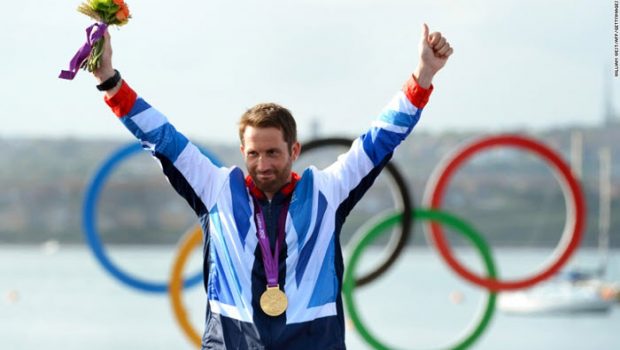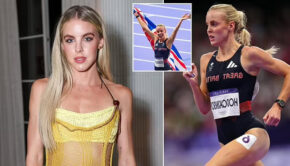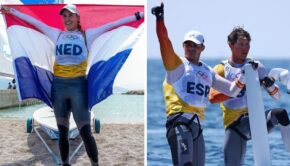The Recipe for Olympic Success
Published on October 11th, 2018
by Shirley Robertson and Ben Church, CNN
Olympic glory is the ultimate honor in most sports. Sailing is no different. With athletes waiting four years for an opportunity to win a coveted gold medal, competition is tough and the stakes are high.
Two years out from Tokyo 2020, CNN’s Mainsail visited the Sailing World Championships in Aarhus, Denmark to discover if there was a secret recipe to Olympic success.
‘Revolutionary’ funding
As unromantic as it sounds, money certainly helps when it comes to winning on the global stage. The British team are the perfect example. British Sailing’s Director of Racing Ian Walker accepts the introduction of funding from UK Sport in 1997 was a catalyst which “revolutionized” the team.
“People were able to sail full-time, so it effectively professionalized the sport. Suddenly you could just concentrate on being the best sailor you could possibly be,” he told Mainsail.
The injection of money catapulted Team GB years beyond its rivals and the evidence suggests it helped in the race for medals. They’re now the most successful nation in Olympic sailing history, topping the all-time medal table with 28 golds.
Notably, 12 of those have come since the 2000 Sydney Games.
Many nations don’t have pockets as deep as Britain, though. These teams have to be clever in order to maximize their budgets. By only pumping resources into sailing classes where they can excel, the Dutch, for example, are able to target their funding at athletes they believe have a chance of success.
“We don’t want to be a copy of Britain, we thought about it and we would definitely lose,” Head Coach of the Dutch Olympic Sailing Team, Jaap Ziehuis, explains. “Without funding you can’t get the right equipment, you can’t hire the best coaches, you can’t afford to go and train at the important venues. So money is very important.”
‘Talent gets you about 50 percent of the way’
Funding is clearly a big stepping stone to achieving Olympic glory but there’s more. You also need a genetic disposition to be good at a certain sport.
“You can become top 15-20 in the world by being a machine. Just going out training hard, lifting weights, being really strong in your head,” two-time US Olympian Paige Riley told CNN. “But in my mind, to be a top three, to be bringing home medals, it takes a special something inside a person.”
One man who seems to personify the power of innate ability, is Ben Ainslie. With four golds and one silver medal, the Briton is the most decorated sailor in Olympic history. He showed his world-class potential at an early age, competing in his first international event aged 12. But you’d be wrong if you think he’s ever rested on his natural-born ability to secure gold medals.
“Raw talent gets you about 50% of the way,” he told CNN. “Hard work, graft and dedication is what you need to finish the job off. You can’t rely on talent alone.
“I’ve raced against a lot of incredibly talented sailors … and you look at the ones who consistently win and they’re the ones that go that extra mile, are that bit more focused, determined, preparation is that much better.”
No such thing as talent
This is a view taken to the extreme by Dutch Olympic medalist Marit Bouwmeester. Fast-tracked through a talent program in the Netherlands, Bouwmeester won Laser Radial gold at the 2016 Games. She believes her success is simply a result of hard graft.
“I don’t really believe in talent,” she told CNN. “I think you should just enjoy what you do and it’s just hard work and dedication. It’s just putting in the hours and doing more than anybody else.”
A golden combination
Author Owen Slot, who studied Team GB for four years following London 2012, believes the recipe to success involves a combination of the above factors.
“You have to be genetically blessed, you have to have innate talent,” he told CNN.
“You have to have seniors around you, parents or coaches, who can see your talent and help you exploit it. You have to understand high performance, you might look good in your village or town but are you going to look good on the world stage?
“You have to have all of that around you. Then you have a chance of winning a gold medal. If you take away one of those then I think it’s done, no chance.”









 We’ll keep your information safe.
We’ll keep your information safe.